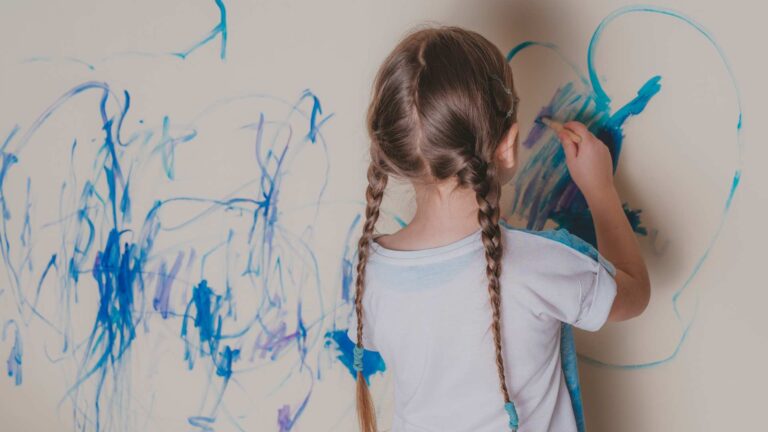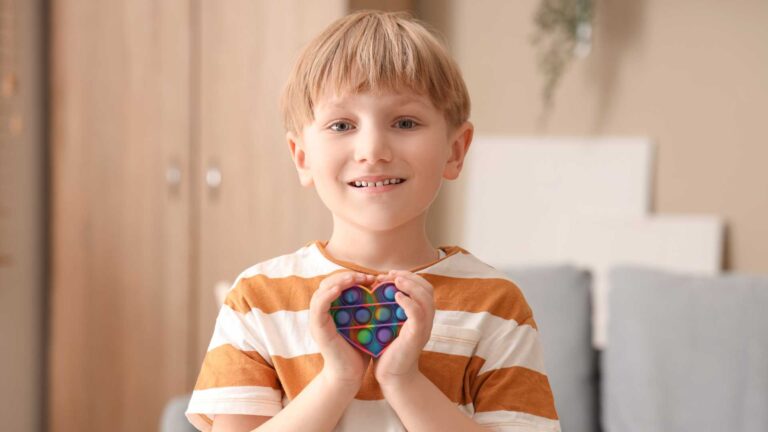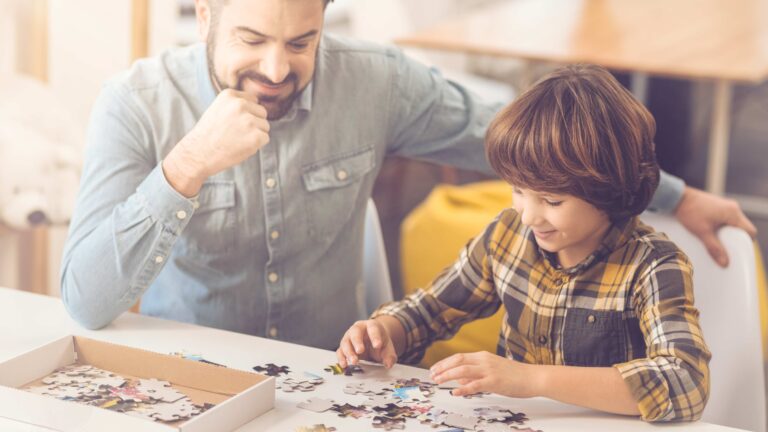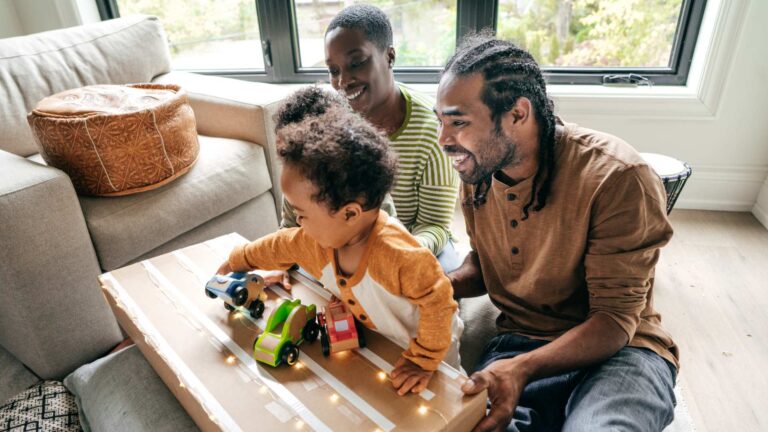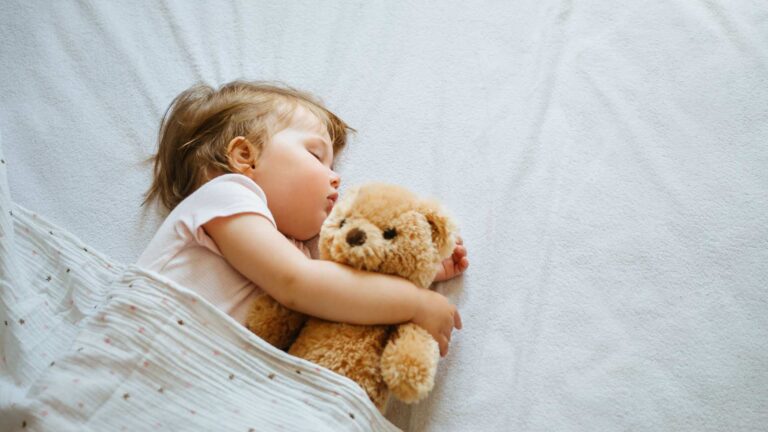Halloween is one of the favorite holidays in the United States, and it’s no wonder, as this fascinating season is full of joy for children and families who enjoy fun costumes, spooky decorations, pumpkins, and sweets! Even though holiday seasons can pose difficulties for kids with Autism Spectrum Disorder (ASD), this spooky season can be fun and inclusive for everyone with the proper preparation.
It’s no secret that experiencing Halloween with Autism can pose additional challenges due to the sensory overload evident during this season. Crowds, loud noises, bright lights, and excess sweets can hinder a child with autism from thoroughly enjoying the holiday. ABA Centers of Georgia has assembled eight tips for preparing for the Halloween season with autism and ensuring a scare-free night.
What are the Challenges Related to Halloween with Autism?
Many individuals on the autism spectrum experience heightened sensitivity to stimuli compared to neurotypical individuals, meaning that a sound, texture, or sight that may be perceived as simple by a neurotypical person can trigger overwhelming sensations in a neurodivergent individual.
We understand that Halloween is a celebration where the traditions heighten sensory stimuli. While intended to be fun, crowds, events, costumes, and spooky, noisy decorations can be challenging for neurodivergent children to process. However, this difficulty does not mean that families with autism should refrain from participating in the celebration. It simply suggests that there should be a prior, pressure-free preparation when approaching Halloween with autism. With the right tools, you can address your child’s unique needs.
8 Useful Tips for a Successful Halloween with Autism
- Don’t Leave Things to Chance: Planning is essential for a successful, autism-friendly Halloween. Using a social story with your child on the spectrum to explain the Halloween celebration can help them know what to expect and reduce anxiety. Create a personalized social narrative with images, pictures, and text to tell a story. You can use this downloadable example from Autism Speaks as a starting point.
Additionally, you can incorporate Halloween Day into a visual calendar for your child, helping build anticipation for the upcoming day and preventing it from taking them by surprise. You can even create a countdown to the day, which can help them get even more excited about participating.
- Choose Activities and Costumes Ensuring Your Child’s Comfort: While trick or treating is the most popular Halloween activity for children, you should not feel obligated to do it if you believe your child won’t enjoy it. Instead, look for autism-friendly Halloween celebration ideas and research autism-friendly events in your city, whether it’s Alpharetta, Atlanta, Buckhead, or Marietta. You can also create a fun night at home to watch a Halloween movie, enjoy some treats, and have a special dinner together.
Costumes are one of the most significant aspects of Halloween, and finding an outfit your child feels comfortable in is crucial. Children with autism often prefer costumes based on familiar characters, such as superheroes or animals. If your child is sensitive to temperature and fabrics, look for comfortable, breathable, and soft options. It’s also a good idea to involve them in the costume selection. You can look for autism-friendly costume options on Amazon or Etsy or search for inspiration on Pinterest to create a costume at home.
- Keep Track of the Sweets: Celebrating Halloween with autism doesn’t mean your child can’t enjoy candies. However, it is essential to moderate their intake as excessive sugar can disrupt or negatively affect your child’s health, especially if they have a special diet. Make sure to monitor your loved one’s candy intake, or you can also explore other healthier options that are equally enjoyable.
- Remember to Have Supportive Items: Whether you’ve chosen to trick or treat with your child, celebrate at home, visit a friend, or attend a community event, bringing supportive items to regulate your child’s sensory input can be very helpful. Things such as noise-canceling headphones, sunglasses, textured stress balls, and others can be included by parents and caregivers if the child feels overwhelmed.
If you’ve chosen to celebrate Halloween away from home, try to have your car nearby in case you need to take your child away to calm them down if they become overwhelmed. Remember to stay calm and provide them a safe space to feel better.
- Avoid Pressure and Take Breaks: It’s okay if you need to interrupt or end the night earlier than planned. Halloween with autism is about having a good time and adapting the fun to your child’s needs to ensure the whole family is having a great time. Taking breaks during the activities you’re doing with your child with autism is advisable. This way, you’ll prevent sensory overload or excessive fatigue, which can lead to challenging behaviors.
- Make Your Home Autism-Friendly for Halloween: Decorating your home for Halloween can be a fun family activity. If your child is sensitive to loud sounds and lights, choose quieter decorations without lights. When decorating your home for Halloween with autism considerations, avoid moving decorations, flashing lights, and fog machines, as they can be uncomfortable or unsafe for your child and may lead to impulsive behaviors. It’s also a good idea to remind them that the decorations are not genuine, just a silly way to celebrate this holiday.
You can also place blue pumpkins outside your home. Many cities in the United States have established that blue pumpkins indicate that a person with autism lives there to raise awareness and encourage empathy when visiting your home for trick-or-treating.
- Safety Comes First: If you decide to go trick-or-treating with your child with autism, there are some precautions to keep in mind, especially if they tend to wander:
- Be sure to take a photo of your child in their costume to have a recent picture in case you need to look for them.
- Ensure they wear shoes that light up or glow-stick bracelets to make them easier to locate in the dark.
- Use a clothing item or accessory that helps them recognize and quickly find you in the crowd.
- Make sure your child carries their identification with their name and your contact information if they get lost. If your child is non-verbal, write your name and cell phone number on a paper and place it in their pocket.
- Print a sticker indicating that your child has Autism Spectrum Disorder and place it in a visible location so people can approach them appropriately without frightening them.
- Have Fun with Friends and Loved Ones: Halloween with autism is better when surrounded by groups who support and understand your needs. Friends, family, and trusted individuals are the best team for celebrating Halloween with autism. During these occasions that deviate from routine, a reliable support network is crucial for dealing with any stressful situations that may arise. Moreover, having your child surrounded by people who know and care for them will help them feel more comfortable, ensuring a more enjoyable experience.
ABA Centers of Georgia Enhances the Halloween Experience with Autism
At ABA Centers of Georgia, we understand that you may feel apprehensive about the festivities and want to find the best way to ensure that your child on the spectrum has a memorable Halloween experience. Alongside the tips outlined in this article, it is also crucial to acknowledge that our ABA therapies provide invaluable resources for your child to learn the necessary social and communication skills to thrive in all aspects of life, allowing them and the entire family to enjoy all celebrations, including Halloween.
Living Halloween with autism requires some preparation, but with patience, dedication, and support, you can guarantee an excellent memory for yourself and your entire family. To learn more about our ABA therapies, call (855) 929 5058 or contact us online. Start your journey with ABA Centers of Georgia and give your kiddo the skills they need to enjoy holidays and life!


